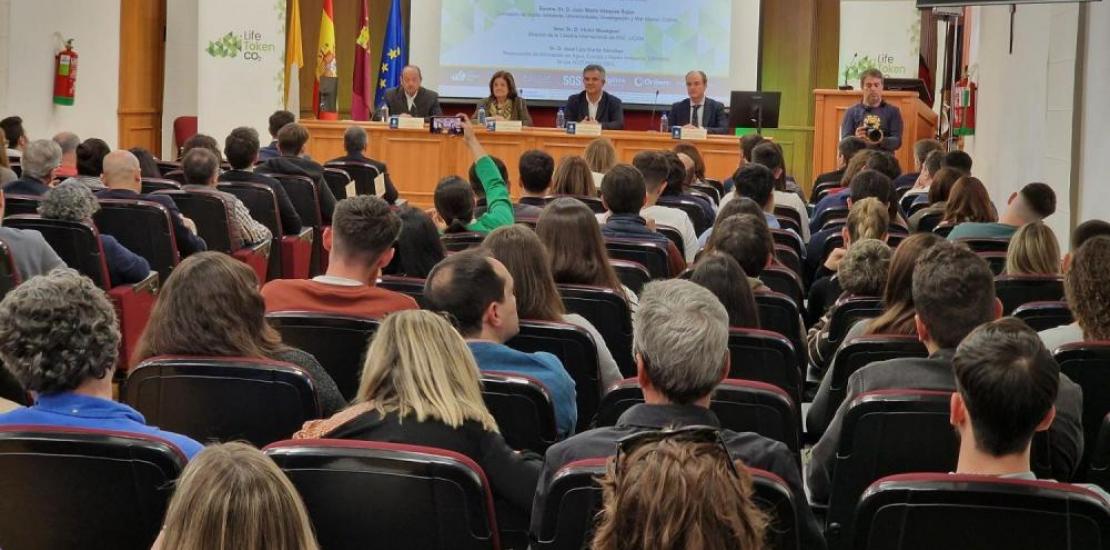UCAM promotes sustainability in the Life Token CO₂ International Conference
Experts from different countries analyse forest management strategies in Murcia to move towards a carbon neutral world.
Universidad Católica San Antonio de Murcia hosted the inauguration of the Life Token CO₂ International Conference, an event that brought together more than 120 attendees from all over Spain and international speakers from Argentina, Greece, Italy and Switzerland. Throughout the three-day event, experts in ecology, environmental law, economics and sustainable development debated the connection between forest management, environmental and social clauses, and strategies to mitigate climate change.
At the opening of the conference, UCAM President María Dolores García emphasised the importance of sustainability and innovation in the management of natural resources. She noted that ‘our region has suffered from a long-standing water shortage and, nonetheless, has a rich agricultural tradition thanks to our ability to optimise resources. Regenerative agriculture is bearing fruit and it is vital that we continue researching and working towards a better future’.
The event is organised by the Research Group GAIA and the UCAM International Chair in Social Responsibility, directed by Víctor Meseguer, and is part of the European project Life Token CO₂, with the participation of: Orthem, the Universidad de Castilla-La Mancha, SGS, Digiltea and the Autonomous Community of the Region of Murcia. This programme, funded with almost three million euros by the European Union, extends until 2026 and will be implemented in parts of the autonomous communities of Valencia, Castilla-La Mancha and Murcia. One of the objectives is the creation of innovative digital tools for the conservation of forests and the reduction of carbon emissions.
The Regional Minister for the Environment, Mar Menor, Universities and Research of the Region of Murcia, Juan María Vázquez, commented that ‘talking about forest management today is talking about it from the perspective of adapting to climate change. This conference helps us move forward with the mechanisms for offsetting and certifying CO₂ emissions, establishing a solid and reliable market for their absorption.
Key issues such as emissions offsetting, environmental certification and the implementation of environmental and social clauses in development projects will be addressed throughout the conference. In addition, a pioneering digital tool will be presented that will enable the precise calculation of CO₂ absorption in forest masses after specific interventions, facilitating the certification of environmental offsets for companies.
In this sense, Víctor Meseguer, Director of the UCAM International Chair in Social Responsibility, has emphasised that ‘this conference is an essential event for experts, authorities and actors in the forestry and environmental sector. This is where innovative solutions to reduce the carbon footprint through efficient and sustainable forest management will be presented.’
Meanwhile, José Luis Durán, Head of Innovation in Water, Energy and Environment at Orthem, stressed the importance of cooperation between academia, government and business: ‘It is essential that the various stakeholders work together. Only by combining knowledge and perspectives will we be able to develop truly useful and effective solutions for sustainability.’
The conference will continue on Friday and Saturday with specialised sessions and workshops that will provide attendees with the opportunity to exchange knowledge and experiences on the current challenges of forest sustainability and climate change.




